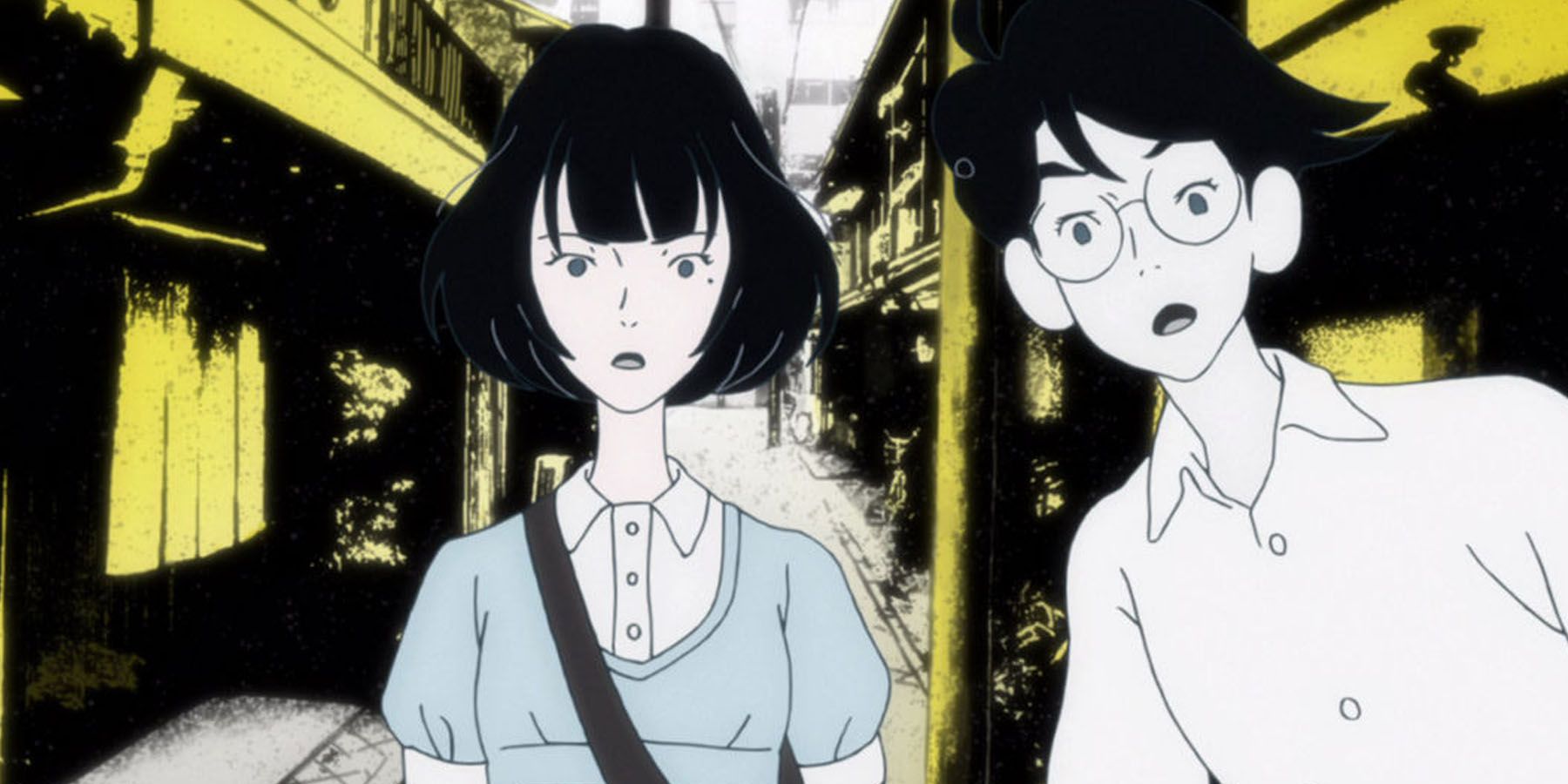Highlights
- Some shows go beyond just reality-warping and break the fourth wall, toying with the audience's perception and leaving them confounded by self-awareness.
- Meta anime can be found across various genres, reflecting aspects of reality-warping and self-reference that have permeated into every genre covered by the medium.
- Shows like Serial Experiments Lain, FLCL, Gintama, The Tatami Galaxy, and Paranoia Agent are prime examples of anime that skillfully blend self-awareness, meta references, and unconventional storytelling to create unique and thought-provoking experiences.
Beyond just giving a character the ability to mold the nature of reality as they see fit, some shows go even further, toying with the audience's perception to leave them confounded by the level of self-awareness they exhibit. From breaking the fourth wall to having characters allude to being part of a series, there are a number of methods to induce a self-referential feel to a show, making it an experience that is far from ordinary.
The landscape of meta anime is quite varied, stretching across the realms of general shonen fare to science fiction, comedy, psychological thrillers, and even slice of life. More often than not, this classification does not restrict itself to a specific genre but is more rooted in a series' conceptual underpinning, presentation style, and thematic leanings. Hence, there is likely a show that reflects aspects of reality warping or self-reference, which could appeal to anyone due to how these ideas have permeated into every genre covered by the medium.
5 Serial Experiments Lain
Although it may have been far ahead of its time, Serial Experiments Lain is perhaps more relevant now than it was when it was released, considering the current scenario where a large part of a person's daily life is spent online. The dichotomy between an individual's real world and virtual personas is a topic that has inspired a great deal of inquiry, and Serial Experiments Lain was among a select few pieces of fiction to broach this topic before it became normalized.
The series focuses on the life of Lain Iwakura, a junior high school student who explores the virtual world of the Wired till the boundaries between the real and digital realms blur beyond distinction.
4 FLCL
While some of its plot points may go over a viewer's head, the show's characters are more than aware of this and may even inquire about whether the audience can actually keep up with the action. Equal parts science fiction, action, and comedy, FLCL broke new ground by taking the entire rule book and tossing it out the window to create a story that is meant to confound viewers but leave them thoroughly impressed by the ambition of those involved in its production.
With hyperactive pacing, innuendo-laden dialogue, and abstract imagery, FLCL is an experience that has no real benchmark for comparison, which speaks volumes of the distinct disregard for rules that makes it stand out from the rest.
3 Gintama
As far as shows that astutely blend self-awareness and meta references into their narratives go, Gintama is a class apart. From incredibly self-aware characters who explicitly discuss the fact that they exist as part of a fictional narrative, to blatantly adapting plot points from its peers to use as gags, anything goes in the world of Gintama, and this is only the tip of the iceberg.
Things go even further when the main cast explores the distinction between canon and filler episodes in a series or characters complain about the lack of budget in the animation department responsible for producing the show. Gintama skillfully weaves self-awareness into its deconstruction of shonen archetypes and satire of the medium of anime as a whole.
2 The Tatami Galaxy
Masaaki Yuasa is famed for his heavily stylized and borderline surreal approach to telling stories, and this adaptation of Tomihiko Morimi's varsity novel is a stellar example of his unique aesthetic. Following the exploits of an unnamed third-year college student at Kyoto University, Science SARU's take on The Tatami Galaxy blends humor, parallel universes, romance, fantastical daydreaming, and a touch of the absurd while still capturing all the trials and tribulations associated with coming of age.
A gem of a show that masterfully navigates its high concept, The Tatami Galaxy retains a profound level of emotional depth underneath its borderline bizarre tone, which gives it the soul to succeed where other similar series may have failed.
1 Paranoia Agent
No list of meta anime would be complete without the work of the late Satoshi Kon, and Paranoia Agent is a rare case of a series whose reputation and acclaim precede itself. Centered on a set of disturbing incidents surrounding a mysterious delinquent known as "Shonen Bat" — or "Lil' Slugger" in the English dub — the series tackles the troubled realities of urban living from a number of different perspectives. Its cast of characters is quite diverse, and the subtle tonal shifts in the series are skillfully handled, allowing its softer moments to flow seamlessly into darker sequences, which expose the more sinister inner workings and prejudices of the minds of individual characters.
Each episode is essentially a standalone story, born from a host of unused ideas Kon had accumulated over the years, with only the recurring character of Shonen Bat tying it all together. Paranoia Agent is neither a psychological thriller nor slice of life but a tale where the questions raised by its cast are far more important than the answers they may produce.









